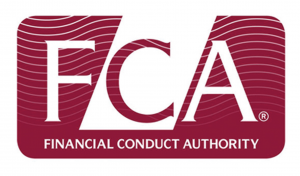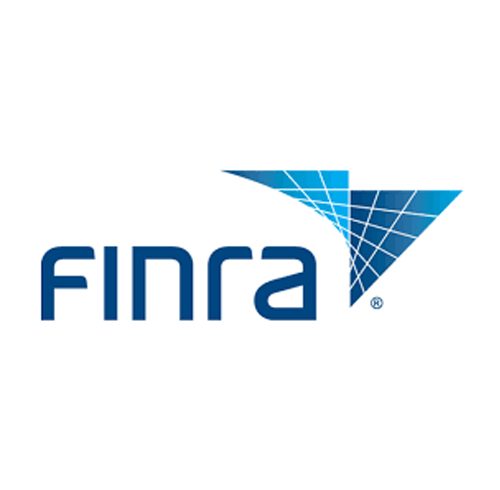 Regulatory technology, or regtech, will have its biggest effect in five main areas.
Regulatory technology, or regtech, will have its biggest effect in five main areas.
FINRA, or the Financial Industry Regulatory Authority, put out a white paper in September 2018 identifying these areas, and that white paper was discussed in the most recent FINRA podcast, Unscripted.
On this podcast, the three guests were: Nick Cook, head of RegTech and Advanced Analytics at the United Kingdom’s Financial Conduct Authority (FCA); Michael Pieciak, Vermont’s Commissioner of Financial Regulation and the president of the North American Securities Administrators Association (NASAA); and Haime Workie, FINRA’s senior director of Emerging Regulatory Issues.
The five areas where regtech would apply were: surveillance and monitoring, customer identification and anti-money laundering (AML) compliance, regulatory intelligence, reporting and risk management, and investor risk assessment.
With regards to surveillance and monitoring, the paper noted, “Based on discussions held by FINRA staff with various broker-dealers and other participants in RegTech, surveillance and monitoring is an area where RegTech is gaining substantial traction. For purposes of this paper, the area of surveillance and monitoring applies broadly to market surveillance and conduct monitoring, such as monitoring traders, registered representatives, employees, and customers for regulatory purposes.
“Market participants have indicated that they are investing significant resources in this area, primarily in RegTech tools that seek to utilize cloud computing, big data analytics or AI/machine learning to obtain more accurate alerts and enhance compliance and supervisory staff efficiencies. Several market participants have noted significant reductions in false alerts generated by surveillance systems after utilizing RegTech tools.”
Regarding customer identification the paper noted, “Another compliance program area where there has been greater interest in the adoption of RegTech tools involves customer identification (also known as ‘know-your-customer’ or KYC) and AML programs.20
“Customer identification and AML related rules and regulations are critical to legitimate and orderly conduct of financial markets. They allow market participants and regulators to identify and detect potential money laundering and terrorist financing activities, and other offences such as securities fraud and market manipulation. However, customer identification and AML compliance also come with associated costs.”
 Regarding regulatory intelligence, “Regulatory intelligence programs refer to areas of compliance that focus on the identification and interpretation of changes to applicable rules and regulations, frequently across multiple jurisdictions, in order to update a firm’s compliance operations. Given the significant resources devoted to this area, market participants have been exploring the use of RegTech tools to help streamline this process.
Regarding regulatory intelligence, “Regulatory intelligence programs refer to areas of compliance that focus on the identification and interpretation of changes to applicable rules and regulations, frequently across multiple jurisdictions, in order to update a firm’s compliance operations. Given the significant resources devoted to this area, market participants have been exploring the use of RegTech tools to help streamline this process.
“In their basic form, RegTech tools assisting with regulatory intelligence typically provide a catalog of regulatory requirements in a user-friendly manner, that are updated on a real-time basis with timely reminders on forthcoming changes and new enforcement actions that may alert firms to review applicable supervision and compliance operations. Vendors operating in this space have also started to use natural language processing and machine learning to read and interpret new and existing regulatory requirements and then offer a gap analysis to their clients to help identify potential deficiencies within an organization’s compliance program. These RegTech tools seek to help automate at least portions of what is otherwise an extremely manual and time-consuming process under which firms track relevant regulatory changes and then determine and implement appropriate changes to their compliance programs.”
Cook noted on the podcast, “There’s a lot of interest in what we would consider regulatory intelligence tools, helping firms understand what their obligations are.
Regarding reporting and risk management, “Reporting and risk management programs represent another compliance area where firms are seeking to utilize RegTech tools. Solutions in this space leverage technology to develop tools to facilitate or automate processes involved in risk-data aggregation, risk metrics creation and monitoring (for enterprise risk management as well as operational risk management), and regulatory reporting. For example, to assist with risk-data aggregation or regulatory reporting, a RegTech tool may be deployed to gather and analyze information on capital and liquidity for use in internal models or to report to regulators.”
Regarding risk management, “In order to provide appropriate investment advice to clients, firms must seek information from their clients and apply reasonable policies and procedures to determine the investor’s risk appetite and tolerance, subject to any periodic updates or refinements. The development of RegTech tools to assist with investor risk assessment is a relatively small but growing space within RegTech.
“These types of RegTech tools seek to leverage technological innovations (such as data aggregation and machine learning) in combination with behavioral sciences to determine an investor’s risk appetite and tolerance in a more scientific manner than existing tools. For example, some tools assess an investor’s risk appetite and tolerance based on an investor’s performance on “games” designed to provide insights into the investor’s reactions to changes in market conditions and portfolio performance. This information could be used in conjunction with an investor’s stated preferences to help develop a more holistic picture of an investor. In addition, some RegTech tools monitor investor portfolios in changing market conditions and produce recommendations to better align the portfolio with the investor’s risk profile.”
Workie said the 2008 financial crisis made emphasis on regtech more significant, “What’s different and why the term got coined more recently is the confluence of the various regulatory changes occurring post the financial crisis.”
Workie also said symbiosis of new technologies have also advanced regtech. “things like AI (and) cog computing coming together,”
The three guests were at the FINRA Regtech conference held last month, where they all sat on a panel.









